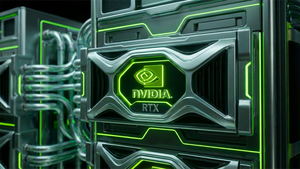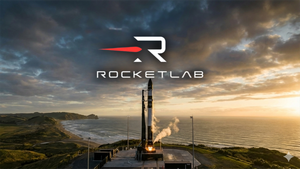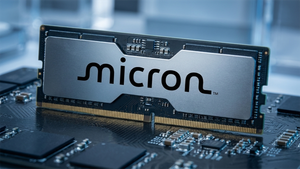
Amsterdam, The Netherlands – October 22, 2025 – A deepening geopolitical standoff over Nexperia, a critical Dutch-headquartered semiconductor manufacturer, is sending shockwaves through the global automotive industry, threatening imminent production halts across Europe and beyond. The dispute, stemming from the Dutch government's unprecedented intervention into the Chinese-owned chipmaker and Beijing's swift retaliation, has laid bare the extreme vulnerabilities embedded within global supply chains, particularly for the foundational components essential for modern, increasingly AI-driven vehicles. This crisis not only jeopardizes immediate car production but also casts a long shadow over Europe's ambitions for technological independence and the future trajectory of AI innovation in the automotive sector.
The escalating conflict, unfolding rapidly in late 2025, sees the Netherlands seizing temporary control of Nexperia from its Chinese parent, Wingtech Technology (SSE: 600745), citing national security and governance concerns. In a tit-for-tat move, China has retaliated by blocking the export of critical Nexperia-made components from its shores. With automakers' existing inventories of these "unglamorous but vital" chips projected to last only weeks, the industry faces an acute threat that could see assembly lines grind to a halt, compounding the challenges of an already turbulent period for global manufacturing and further exposing the delicate infrastructure underpinning advanced automotive technologies, including autonomous driving and sophisticated in-car AI systems.
The Geopolitical Chip War: A Deep Dive into the Nexperia Imbroglio
The Nexperia dispute is a complex web of geopolitical maneuvering and economic security concerns. At its core, the conflict centers on the Dutch government's invocation of its Goods Availability Act, an emergency law, to intervene in Nexperia's operations. This drastic step, taken on September 30, 2025, was driven by "serious governance shortcomings" and fears of critical technological knowledge being transferred out of Europe to its Chinese owner, Wingtech Technology. The move followed a December 2024 decision by the U.S. Department of Commerce to place Wingtech on its "entity list," restricting its access to American technology due to national security concerns, which was expanded in September 2025 to include entities at least 50% owned by blacklisted companies, directly impacting Nexperia.
Key allegations fueling the Dutch intervention included the "improper transfer" of production capacity, financial resources, and intellectual property to a foreign entity linked to Nexperia's then-CEO, Zhang Xuezheng, who was subsequently suspended by the Amsterdam Enterprise Chamber on October 7, 2025. China swiftly retaliated on October 4, 2025, with its Ministry of Commerce imposing export restrictions, barring Nexperia's China arm and its subcontractors from exporting specific components and sub-assemblies manufactured within China. This corporate standoff intensified on October 19, 2025, when Nexperia China reportedly issued an internal memo instructing its employees to disregard directives from the Dutch headquarters, asserting its independence.
Nexperia is a high-volume supplier of discrete semiconductors, including diodes, transistors (particularly MOSFETs), and logic circuits. These "basic" chips, while not the high-end processors that power advanced AI algorithms, are absolutely foundational. They are ubiquitous in electronic control units (ECUs), power management systems, and functional controls for everything from fuel delivery and braking to electronic seating and steering wheel controls. Six out of ten chips Nexperia produces are for automotive use, and the company accounts for roughly 40% of the global market for crucial transistors and diodes. Their critical role, coupled with stringent automotive qualification (AEC Q100/Q101) and deep integration into Tier 1 supplier modules (e.g., Bosch, Denso), makes them incredibly difficult to replace quickly, differing significantly from previous supply chain disruptions that often focused on more advanced, specialized chips. Initial reactions from industry experts and automotive associations have been alarm, with warnings of severe, immediate production impacts.
Ripple Effects: Automakers on the Brink, AI Innovation Stifled
The Nexperia dispute has sent shockwaves across the automotive and broader tech landscapes, with significant competitive implications. Major automotive companies are most vulnerable, facing the immediate threat of production halts. General Motors (NYSE: GM) CEO Mary Barra and the German Association of the Automotive Industry (VDA) have already voiced grave concerns, with automakers like Volkswagen (XTRA: VOW), BMW (XTRA: BMW), Mercedes-Benz (XTRA: MBG), Stellantis (NYSE: STLA), Renault (EPA: RNO), Honda (NYSE: HMC), and Toyota (NYSE: TM) scrambling to assess their exposure. Many have established task forces, and Volkswagen has warned of potential temporary production outages. Tier 1 suppliers such as Bosch and Denso (TSE: 6902), which embed Nexperia chips into their preassembled modules, are also highly exposed.
While the dispute poses an existential threat to many, a handful of semiconductor firms stand to benefit from the crisis. Competing manufacturers of discrete semiconductors, diodes, and MOSFETs, such as Texas Instruments (NASDAQ: TXN) and various Taiwanese automotive semiconductor makers, are already experiencing a surge in demand and rush orders. This sudden supply-demand imbalance is projected to lead to price increases of 5% to 15% for MOSFETs and diodes in the fourth quarter, with high-end automotive components potentially seeing hikes over 20%. This situation could shift market positioning, favoring suppliers with diversified manufacturing bases or those capable of quickly scaling production of these essential components.
Crucially, the Nexperia dispute indirectly but profoundly impacts the burgeoning automotive AI and autonomous driving sectors. While Nexperia's products are not the sophisticated AI processors themselves, they are the indispensable "nervous system" of modern vehicles. Without these foundational chips, the most advanced AI-driven systems—from sophisticated driver-assistance features to fully autonomous platforms—simply cannot function. This crisis forces established automotive players and emerging tech companies focused on AI to divert critical engineering and financial resources from AI-specific R&D to addressing basic component shortages and lengthy re-qualification processes for alternative suppliers. This diversion risks slowing down the pace of AI innovation and deployment in vehicles, potentially delaying crucial advancements in areas like perception systems, decision-making algorithms, and vehicle-to-everything (V2X) communication, all of which rely on a robust and secure underlying hardware infrastructure. The competitive landscape will likely pivot towards companies that demonstrate superior end-to-end supply chain resilience, not just in cutting-edge AI chips, but across the entire bill of materials.
A New Era of Tech Nationalism: Global Implications and Concerns
The Nexperia dispute is more than a supply chain hiccup; it's a stark indicator of a new era of tech nationalism and escalating geopolitical competition. It fits squarely into the broader AI and tech landscape's trend towards "de-risking" and technological sovereignty. The intervention by the Dutch government, influenced by US pressure, and China's retaliatory export bans, set a concerning precedent where national security concerns are prioritized over established market norms and the sanctity of international commercial agreements. This trend creates immense uncertainty for any tech company with global operations or reliance on components from politically sensitive regions.
This crisis is a potent reminder of the vulnerabilities inherent in highly optimized, geographically dispersed supply chains, a lesson previously hammered home by the COVID-19 pandemic's global chip shortage. However, unlike that crisis, which was primarily driven by unexpected demand surges and logistical issues, the Nexperia dispute is fundamentally political. It echoes the 2023 US pressure on the Netherlands to restrict ASML (AMS: ASML) from selling its advanced EUV lithography machines to China, highlighting the Netherlands' critical role as a "chokepoint" in the US-China tech rivalry. This time, the conflict extends to "legacy" chips, demonstrating that even the most basic components are now instruments of geopolitical leverage.
Potential long-term impacts include a hastened global push for technological independence, with initiatives like the European Chips Act gaining renewed urgency to bolster domestic manufacturing. While this could foster localized innovation, it also risks supply chain fragmentation, increased costs, and potentially slower global R&D collaboration. The dispute also raises significant concerns about global trade and investment, as China argues the Dutch actions retroactively invalidate legitimate transactions. If such interventions become commonplace, they could erode investor trust and undermine the principles of legal security and property rights essential for international commerce.
The Road Ahead: Diversification, Diplomacy, and AI's Foundational Security
In the near term, the primary focus will be on resolving the immediate supply crisis. Diplomatic efforts are reportedly underway, with the Dutch Economy Minister expecting to meet with Chinese officials. Nexperia itself is engaging with both US and Chinese authorities to seek exemptions from export controls. However, the situation remains "very fluid," exacerbated by Nexperia China's declaration of operational independence. Experts predict that "quick and pragmatic solutions" are essential to avert widespread production halts.
For the automotive industry, the immediate challenge is securing alternative chip sources. This will likely accelerate the drive for diversified sourcing strategies and potentially localized production hubs to enhance resilience against future geopolitical shocks. The long-term implications for AI in automotive are significant. While direct AI chip supply might not be immediately affected, the foundational reliance on components like Nexperia's means that national and corporate "AI sovereignty" will increasingly depend on securing the entire semiconductor supply chain, not just the advanced processors. Future applications and use cases for AI in vehicles, from advanced safety systems to fully autonomous logistics, hinge on the stable and secure availability of all necessary hardware.
Challenges include the lengthy re-homologation processes required for automotive components, the added sovereign risk for global investments, and Europe's precarious position between the US and China. Experts predict a new supply chain reality where geopolitical maneuvering can disrupt entire product ecosystems overnight, necessitating agile and diversified supply chain architectures. This could also spur increased R&D into alternative materials and chip architectures to reduce reliance on specific geopolitical supply chains, indirectly influencing innovation across the tech sector.
A Wake-Up Call for a Connected World
The Nexperia semiconductor dispute serves as a profound wake-up call for the globalized tech industry. It underscores the critical interconnectedness of even the most seemingly mundane components to the most advanced technological aspirations, including the future of AI. The crisis highlights that geopolitical tensions, when combined with concentrated supply chains, can create vulnerabilities capable of derailing entire industries.
Key takeaways include the urgent need for supply chain diversification, the escalating weaponization of technology in international relations, and the indirect but significant impact on AI innovation when foundational hardware is disrupted. This development marks a significant moment in AI history, not for a breakthrough in AI itself, but for revealing the fragile industrial underpinnings upon which advanced AI applications are built. The long-term impact will likely be a fundamental re-evaluation of global manufacturing strategies, pushing towards greater regionalization and a heightened focus on end-to-end supply chain security.
In the coming weeks and months, the world will be watching for diplomatic breakthroughs, the resilience of automotive production lines, and how quickly the industry can adapt to this new, politically charged reality. The Nexperia dispute is a stark reminder that the future of AI, particularly in critical sectors like automotive, is inextricably linked to the stability and security of the global semiconductor ecosystem.
This content is intended for informational purposes only and represents analysis of current AI developments.
TokenRing AI delivers enterprise-grade solutions for multi-agent AI workflow orchestration, AI-powered development tools, and seamless remote collaboration platforms.
For more information, visit https://www.tokenring.ai/.





